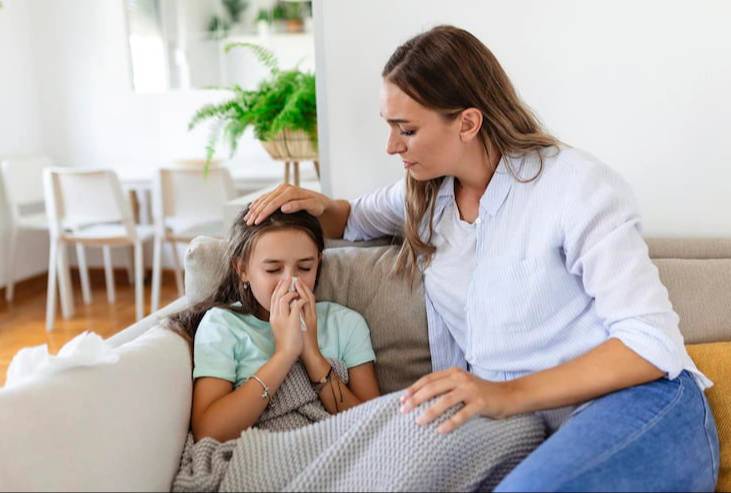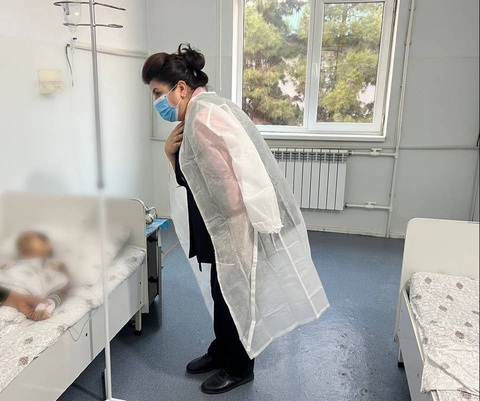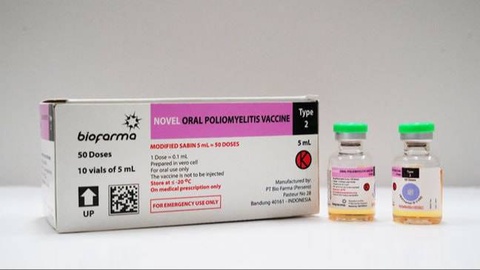At such a time, it is important for parents to be especially attentive to protecting their children from viral diseases.
This question was answered in detail by the Doctor of medical Sciences, Professor Furkat Shamsiev.
- On rainy days and in cool weather, the body's ability to resist viruses and infections decreases, - said the specialist. That is, due to an increase in humidity in the air, the body becomes more vulnerable to diseases, and this is especially evident in children.
To prevent children from contracting such infections, first of all in the family it is necessary to teach them to follow hygienic rules, such as washing their hands with soap or regular disinfection with antiseptic agents. This is one of the key factors of protection against seasonal viral infections.
It is also important to teach children not to touch their face with their hands, regularly ventilate rooms and cover their mouth and nose with a handkerchief or elbow when coughing or sneezing.
It is necessary to explain to children that they should not go close to sick friends and wear protective masks. If a child is ill, he should not be sent to kindergarten or school.
A particularly common mistake is wiping the throat with iodine or green tea in children with high fever. The fact is that the mucous membrane of the respiratory tract in young children is very delicate, besides it is inflamed and edematous due to the virus.
If such products are applied to it, it can lead to damage to the mucous membrane, increased edema, the development of laryngitis and other complications.
In addition, if the child does not have febrile seizures, and the body temperature due to the disease does not exceed 38-38.5 degrees, then there is no need to bring down the temperature. Only when it is increased, you can give "Paracetamol" or "Ibuprofen" (in the form of syrup for children).
A body temperature of 37 ° C is not a sign of fever. Frequent use of antipyretics can negatively affect the body's thermoregulation center.
In addition, wormwood should not be fumigated in rooms where children with allergic cough, asthma or inflammation of the upper respiratory tract are located. Smoke can increase respiratory spasms and worsen the cough condition.
During colds and at elevated temperatures, drinking large amounts of liquid helps to defeat the disease faster. It is also important for the child to eat properly and rationally, eliminate foci of chronic infection and harden the body to prevent seasonal diseases.
Additionally, it is recommended to give the child an aqueous solution of vitamin D (Aquadetrim), ascorbic acid, zinc and selenium, and iron preparations for the treatment of anemia. This will help to increase the resistance of the respiratory tract to diseases.













